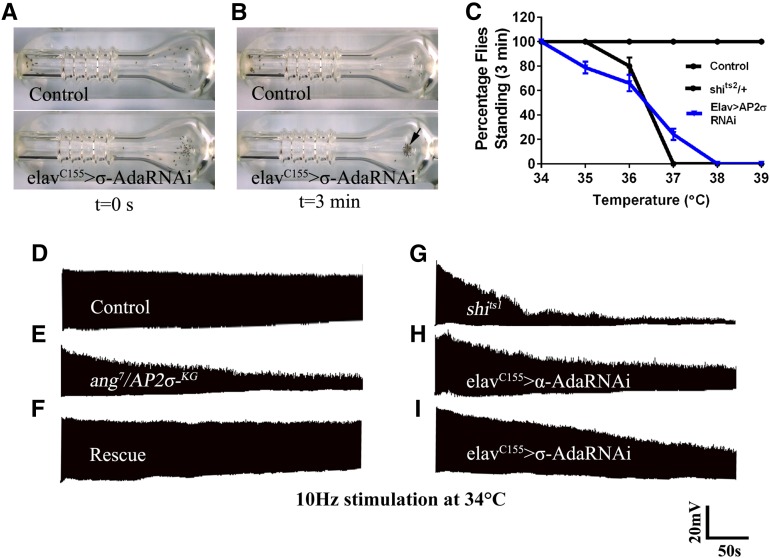Figure 5.
Reducing σ2-adaptin levels in neurons causes temperature-sensitive paralysis at elevated temperature. (A and B) Control (elavC155/+) 2- to 3-day-old adult flies do not suffer paralysis in 3 min at 38ο, whereas similarly aged adult flies expressing σ2-adaptin RNAi (elavC155/+; σ2-adaptin RNAi/+) in neurons showed complete paralysis in 3 min at 38ο. These animals recovered within 2 min when shifted to 25ο (not shown). (C) Paralysis profile of control animals and animals expressing RNAi against σ2-adaptin in neurons (elavC155/+; σ2-adaptin RNAi/+) and shits2/+. While the control animals do not suffer paralysis in 3 min, the RNAi-expressing animals are paralyzed above 35ο. Five trials were performed for each genotype at each temperature in a sushi cooker (Ramaswami et al. 1993). Each trial contained 10–15 animals. Error bars represent standard error of the mean. (D–I) Representative traces of EJPs under high-frequency stimulation of indicated genotypes stimulated at 10 Hz for 5 min at 34° in 1.5 mM Ca2+ containing HL3. Unlike shibrets1 (G), mutant (E) and neuronally reduced α- or σ2- adaptin (H and I) animals do not show complete reduction in EJP amplitude at the end of 5 min of stimulation.

